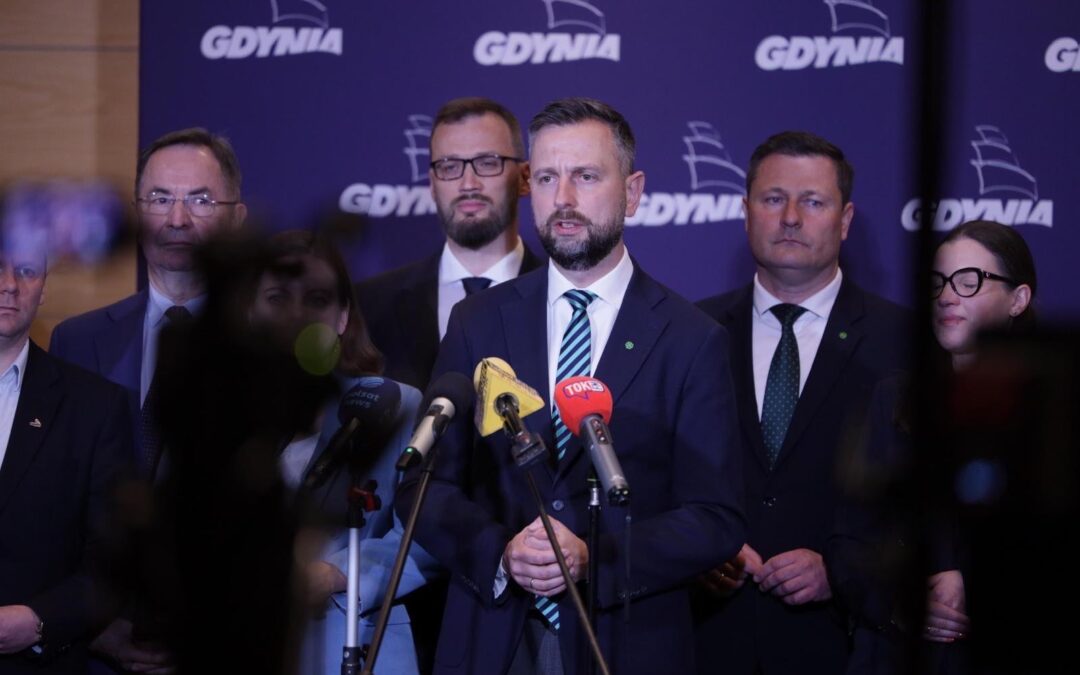Keep our news free from ads and paywalls by making a donation to support our work!

Notes from Poland is run by a small editorial team and is published by an independent, non-profit foundation that is funded through donations from our readers. We cannot do what we do without your support.
The Polish government has announced plans to establish a green industrial district in the Pomerania region in northern Poland.
The project, which is named “Kashubia” after an ethnocultural region in Pomerania, is expected to be of strategic importance for the country’s security and allow for the economic development of the area.
Bezpieczeństwo Polski to silna infrastruktura i gospodarka.
Dlatego wspieramy projekt „Kaszubia” – zielony okręg przemysłowy, który połączy nowoczesne technologie z potencjałem regionu.
Realizujemy też strategiczne inwestycje: rozbudowę portów w Gdyni i Gdańsku, budowę agroportu… pic.twitter.com/TugE2Nvk3D— Władysław Kosiniak-Kamysz (@KosiniakKamysz) May 5, 2025
Speaking yesterday in the city of Gdynia at a conference about strategic directions for the development of Pomerania, Władysław Kosiniak-Kamysz, a deputy prime minister and defence minister, said that the project will strengthen regional infrastructure by using locally produced energy.
“We have a big, ambitious plan – Kashubia. A blueprint for a green industrial district that takes advantage of security and economy, communication, transport and trade routes, and builds capacity using the cheapest and closest located energy,” he said, quoted by the Polish Press Agency (PAP).
The project entails the strengthening of road, rail and energy infrastructure, the development of new technologies such as dual-use services, as well as drone and anti-drone systems, and the simplification of investment procedures in the region.
Development will be implemented with the use of local energy sources such as offshore wind farms in the Baltic Sea, onshore photovoltaics, and a planned nuclear power plant which will be located on Poland’s northern Baltic Sea coast.
Construction of Poland’s first offshore wind farm has begun in the Baltic Sea.
The facility, which is being established by Polish state energy giant Orlen and Canada’s Northland Power, is expected to begin operation next year with a capacity of 1.2 GW https://t.co/cYPp0rQya1
— Notes from Poland 🇵🇱 (@notesfrompoland) February 6, 2025
“In the past, Silesia developed its industry based on the energy that was generated there,” said Kosiniak-Kamysz, referring to the historically coal-powered region in southern Poland. “Today, the same task faces Pomerania and Gdynia.”
Gdynia’s mayor, Aleksandra Kosiorek, highlighted that the project will also strengthen the area militarily. “While everyone has understood over the years that the port of Gdynia is key for the economy…it has been forgotten that its second purpose is the defence of the state,” she said.
To strengthen Gdynia’s military capacity, she explained, it will be key to develop the so-called Red Road and Kwiatkowski flyover, which together connect the port to the national network of highways and expressways.
“We can have the best navy, but without the Red Road, without taking care of the Kwiatkowski flyover, this port will not function properly. Today, the security of the whole country lies in my city.”
Kosiniak-Kamysz said that work on the Red Road will begin in 2026. “The safety of the Baltic [Sea] is an absolutely sacred matter. There is no Poland without access to the Baltic, there is no Poland without a safe Baltic, there is no development of Poland and our economy without engaging and drawing on the sea,” he declared.
Development minister Krzysztof Paszyk announced at the conference that he has already set up a working team to support the project.
“The Kashubia project is a giant step for central Pomerania, Kashubia, Gdynia on the way to returning to its rightful place on the economic map of Poland. We want Gdynia to be the economic centre of central Pomerania,” he said.
The project also aims to achieve, among other things, sustainable development of the region, stopping its depopulation, increasing tax revenues of local municipalities, reducing unemployment and lowering the cost of living, reports PAP.
Kosiniak-Kamysz highlighted that Kashubia is a long-term project. It is “a philosophy, it is an aspiration. It will be spread over decades, and it should never end, it should always keep developing,” he added.

Notes from Poland is run by a small editorial team and published by an independent, non-profit foundation that is funded through donations from our readers. We cannot do what we do without your support.
Main image credit: Władysław Kosiniak-Kamysz/X

Agata Pyka is a former assistant editor at Notes from Poland. She specialises in Central and Eastern European affairs, cybersecurity, and investigative reporting. She holds a master’s degree in political communication from the University of Amsterdam, and her work has appeared in Euractiv, the Balkan Investigative Reporting Network (BIRN), and The European Correspondent, among others.



















